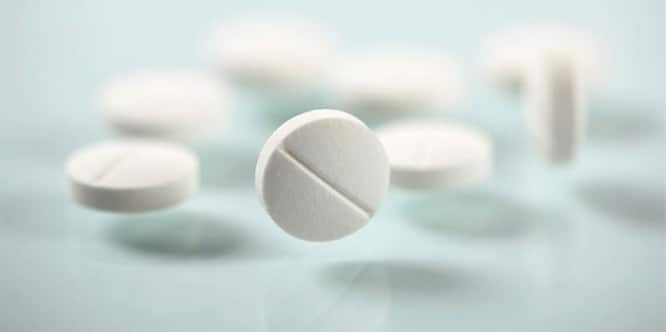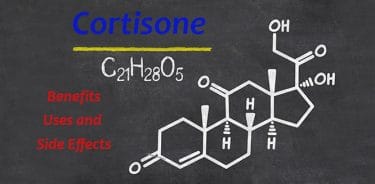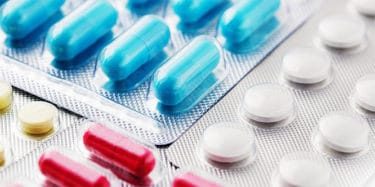Ritalin is a drug used in the treatment of children with attention deficit-hyperactivity disorder (ADHD). Its active substance, methylphenidate, stimulates the central nervous system. It is mostly used in the treatment of narcolepsy. Ritalin should be used under the supervision of a doctor. Dose is adjusted with periodical blood tests. There may be side effects such as loss of appetite, growth retardation in children, nausea, vomiting, dizziness and headache. In case of an overdose or discontinuation without informing your doctor, it may have side effects such as depression, epileptic seizures and mood swings. Therefore, it should be used in accordance with the instructions given by your doctor.
Table of Contents
What is Ritalin (methylphenidate)?
Ritalin (methylphenidate) is a drug that has the effect of stimulating the central nervous system. Its active ingredient, methylphenidate hydrochloride (methylphenidate for short), increases the levels of dopamine and noradrenaline. These neurotransmitters are responsible for the communication between the nerve cells (neurons) in the brain. Excipients are calcium phosphate, lactose, wheat starch, gelatin, magnesium stearate and talc.
What is Ritalin used for?
Ritalin may be used to treat the following neuropsychological conditions:
- Concentration deficiency
- Problems with focusing
- Attention deficiency
- Hyperactivity
- Impulse control disorders such as kleptomania and trichotillomania
- Extreme daytime sleepiness
- Chronic fatigue
The most significant characteristic of Ritalin is that it may cause the opposite effect according to the type of a complaint. For example, it may turn chronic fatigue into mobility while also reducing hyperactivity. Due to this characteristic, the medicine is considered to be a kind of stabilizer.
Diseases for which Ritalin is used
- Attention deficit and hyperactivity disorder (ADHD): It helps reduce impulsive behaviors and hyperactivity and improve attention (attention span) and concentration by affecting the brain chemicals. It also increases activity in certain areas of the brain that are poorly active. It is prescribed to children between the ages of 6 and 18, adolescents, and adults with this condition who do not respond to drug-free treatments, such as behavioral therapy.
- Narcolepsy: It alleviates excessive sleepiness that occurs during the daytime in people with this condition.
Ritalin can also be used to treat HIV (a virus causing AIDS)-associated neurocognitive disorders and to relieve cancer pain.
How is Ritalin used?
- Ritalin tablets should be taken with water on an empty stomach, or between meals.
- It may cause insomnia in some people; therefore, the latest dose should be taken before 6 p.m. unless your doctor recommends otherwise.
- Do not take a double dose to make up for the missed one.
- The medicine should be taken exactly as recommended. It should not be used longer than prescribed. If you think the effect is too strong or too weak, consult your doctor.
- If your doctor suggests a drug holiday for 1-2 days a week (usually on the weekends), you should stop taking Ritalin during this period.
Ritalin should be used with extreme caution. Parents and adult patients should follow the instructions of their doctor exactly.
Doses of Ritalin and dose adjustment
The dose of the medicine depends on tablet type, the age of the individual who will take the medicine, and treatment.
- In children over 6 years old: The starting dose is usually 5 mg 1 or 2 times a day. This may be gradually increased by a doctor until the treatment is effective.
- In adults over 18 years old: The daily dose is usually 20-30 mg. However, some people may need a different dose.
The highest recommended daily dose in children and adults is 60 mg. The duration of action of the medicine depends on the tablet type and dosage. The treatment duration is determined according to the condition of a patient.
Ritalin should not be taken before any operation such as tooth extraction or surgery, as there is a risk of a sudden increase in blood pressure.
Ritalin Overdose
Overdose may cause serious intoxication. It may also be fatal. When the following symptoms are observed, you should apply to an emergency immediately and inform healthcare providers about when you take the medicine.
- Feeling sick and /or anxious
- Vomiting
- Muscle twitching
- Changes in heartbeat (slow, fast or irregular)
- Hypertension
- Redness
- Dry mouth and nose
- High fever
- Seizures
- Dilated pupils
- Tremor
- Confusion (such as mental confusion, lightheadedness)
- Agitation (increased uncontrolled movements)
- Sweating
- Auditory or visual hallucinations
- Headache
- Tics (loss of consciousness may follow)
If the medicine is discontinued abruptly without consulting a doctor, problems such as the following may occur;
- Feeling sad – Depression
- Tachycardia (rapid heartbeat)
- Exhaustion
- Irritability
- Nausea
- Nightmares
- Mania
- Disease symptoms occurring again. If such symptoms persist, see a doctor.
Ritalin treatment should not be stopped without consulting your doctor. Your doctor may want you to gradually reduce the daily amount of medicine before discontinuing. If your doctor stops your medicine to evaluate the effect of the medicine, she or he keeps the condition under control following up.
Controls in the treatment of Ritalin
Before prescribing the medicine, a doctor will investigate the following points to understand the suitability of the patient:
- Other medicines taken by children or adults
- Whether there is any family history of sudden unexplained death
- Physical and mental health problems in the family
- If the patient has/has had any of these feelings such as feeling high or low, having strange thoughts
- Family history of tics
- If there is/has been a substance abuse, such as alcohol, medicine, drugs
It is important that you provide as much information as you can. Your doctor may decide that other medical tests are needed before using this medicine. If the patient is deemed suitable for using this medicine, the patient’s
- Appetite
- Measurement of height-weight
- Blood pressure
- Heart rate
- Mood disorders
- Changes in the mood or other unusual sensations are monitored during the course of treatment (at least once in every six months or more often).
These should be monitored before starting a treatment or when the dose is changed. If the patient does not feel better after a month of treatment, the doctor should be informed. In this case, the doctor may decide another treatment is needed.
Types and forms of Ritalin
There are 3 types of Ritalin depending on its duration of action:
- Ritalin: Tablets – 5 mg, 10 mg, and 20 mg
- Ritalin SR: Sustained-release tablets – 20 mg
- Ritalin LA: Long acting tablets – 20 mg, 30mg, and 40 mg.
Other brand names of methylphenidate
- Concerta: Extended release tablets – 18 mg, 27 mg, 36 mg, and 54 mg.
- Methylin: Chewable tablets – 2.5 mg, 5 mg, and 10 mg / Solution – 5 mg/5 ml, 10 mg/5 ml. / Methylin ER: Extended release tablets – 10 mg, 20 mg.
- Metadate ER: Extended release tablets – 10 mg, 20 mg. / Metadate: Extended release capsules – 10, 20, 30, 40, 50, and 60 mg.
Who should not take Ritalin?
- Those who are allergic to methylphenidate and other excipients in the medicine,
- Patients with thyroid disease
- Those who have increased eye pressure (glaucoma)
- Hypertension patients,
- Those who have adrenal gland tumor
- Those who have eating problems such as loss of appetite etc.
- Those with the history of a condition of the blood vessels in the brain (such as cerebral, aneurysm, vasculitis, narrow or blocked blood vessels or a paralysis),
- Those with vasoconstriction
- Those with the history of heart problems such as a heart attack, irregular heartbeat, pain and discomfort in the chest, heart failure etc. or with a congenital heart problem
- Psychopathic individuals, patients with schizophrenia or borderline
- Those who have health problems such as severe clinical depression or manic episodes
- Those who are allergic to some sugars and wheat should not use this medicine, as it contains lactose and wheat starch (It is suitable for those with celiac disease). The medicine is not prescribed to children under 6 years old.
People who are not sure if they have these problems should talk to their doctor before taking the medicine. The reason is that Ritalin may worsen these problems.
It should be used with caution by those who have the following problems:
- Kidney or liver disease
- History of alcohol, medicine or drug dependence
- Hypertension
- Epilepsy, convulsions, seizures or abnormal brain waves,
- Tics or Tourette’s syndrome (uncontrolled speech-body movements) in a individual or in her/his family
- Bipolar disorder (presenting from being manic to being depressed)
- Irritability, hostile behavior and increased aggression
- Hallucinations (audio-visual, etc.)
- Delusion or paranoia, feeling agitated, anxious, tense
- Feeling depressed or guilty
For those who have these problems or conditions, a special dose adjustment is made. The ideal dose is adjusted by measuring the level of the medicine in the blood. The elderly should also use the medicine with caution, as its effect has not been adequately investigated.
During the first days of Ritalin treatment, dizziness, problems with focusing, blurred vision may occur. As the reflexes may weaken, you should avoid activities such as driving and riding a bike. Alcohol may increase the side effects; therefore, you should not drink alcohol while taking Ritalin.
Use of Ritalin during Pregnancy and breastfeeding
It should not be used without a doctor’s recommendation, as its effect on fetus is unknown. Women who plan to become pregnant or realize that they are pregnant during a treatment should inform their doctor immediately. It should not be used while breastfeeding, as the active ingredient may pass to the child through breast milk.
What does ritalin do to kids?
It is generally safe, but may cause loss of appetite in many children. Moreover, long-term use may cause growth retardation. If a child who takes this medicine experiences the retardation, if she or he gains weight poorly, her/his doctor should be informed. In this case, the treatment may be stopped for a short time. The medicine should not be given to the children under 6 years old, even for trial purposes.
Ritalin drug interactions
Ritalin should not be used if a drug from monoamine oxidase inhibitors (MAOI) group is used in the treatment of depression, or if an MAOI is taken in the last 14 days. Taking an MAOI with the medicine may lead to sudden increases in blood pressure. Some of the other medicines that Ritalin interacts with are:
- All antidepressants
- Medicines for severe mental health problems
- Antiepileptic drugs
- Medicines that reduce or increase blood pressure
- Some cough and cold remedies that may affect blood pressure
- Blood thinners
Ritalin may reduce the effects of the medicines taken and cause side effects; therefore, you should inform your doctor about any medicines you take with or without a prescription.
Side Effects of Ritalin
Side effects that need immediate intervention
Common
- Arrhythmia
- Mood swings
- Hypertension and tachycardia
Uncommon
- Suicidal thoughts
- Hallucinations
- Tourette’s syndrome
- Allergic reaction
- Blood in urine or feces
Rare
- Manic episodes
Very rare
- Heart attack
- Sudden death
- Epileptic etc. seizures
- Peeling of the skin, purplish red spots on the skin
- Muscle contractions
- Stroke, movement or visual problems, difficulty in speaking
- Risk of infection
- Neuroleptic malignant syndrome
- Inflammation and blockage in the brain arteries
- Abnormal liver function, including liver failure and coma
All are very serious side effects. They require immediate medical intervention.
Mild Side effects
You should inform your doctor about the following mild side effects.
Very common
- Headache
- Feeling nervous
- Difficulty in falling asleep
Common
- Joint pain
- Dry mouth
- High fever
- Unusual hair loss or thinning
- Feeling unusually sleepy or drowsy
- Loss of appetite
- Hives
- Cough, sore throat, or nose and throat irritation
- Dizziness, uncontrolled movements, unusual activity
- Irritability, feeling nervous, anxious or depressed, abnormal behavior
- Pain and discomfort in the stomach, diarrhea, feeling sick
Uncommon
- Constipation
- Dyspnea, discomfort and pain in the chest
- Tremor
- Double or blurred vision
- Muscle pain or muscle twitching
- Increase in liver enzymes
- Feeling anger, restless or tearful, excessive awareness of surroundings or sleep problem
Rare
- Changes in sex drive
- Feeling disoriented
- Dilated pupils, vision problems
- Gynecomastia
- Excessive sweating, redness of the skin, and red, swollen skin rash
Very rare
- Muscle cramps
- Small red spots on the skin
- Suicide attempt, abnormal thought, indifference, repeating behaviors, obsessive behaviour against something (over-focusing)
- Numbness, tingling and changing color (from white to blue, then red) in fingers and toes when cold
Warning: Ritalin may cause drug dependency; therefore, it should only be taken according to the instructions. Parents should keep their children under supervision regarding the use of the medicine. This medicine is for the person whom it is prescribed for.




